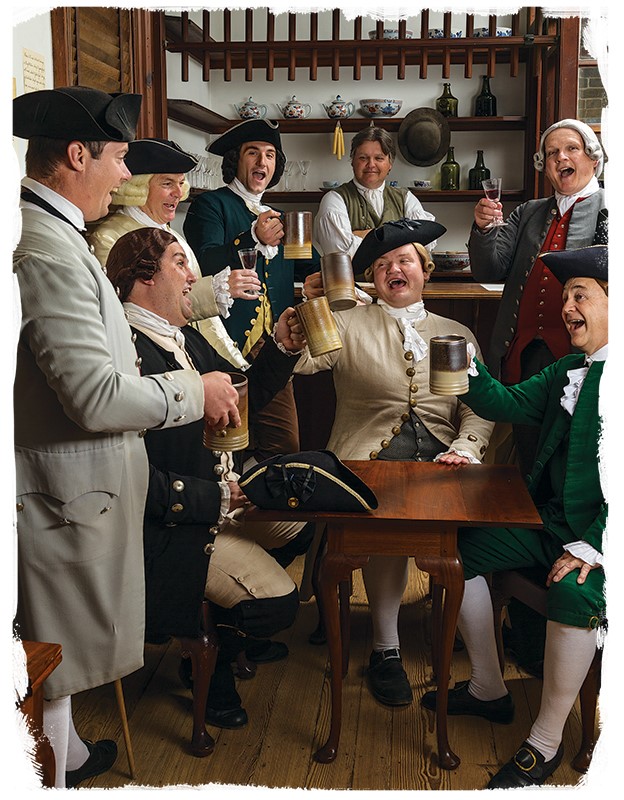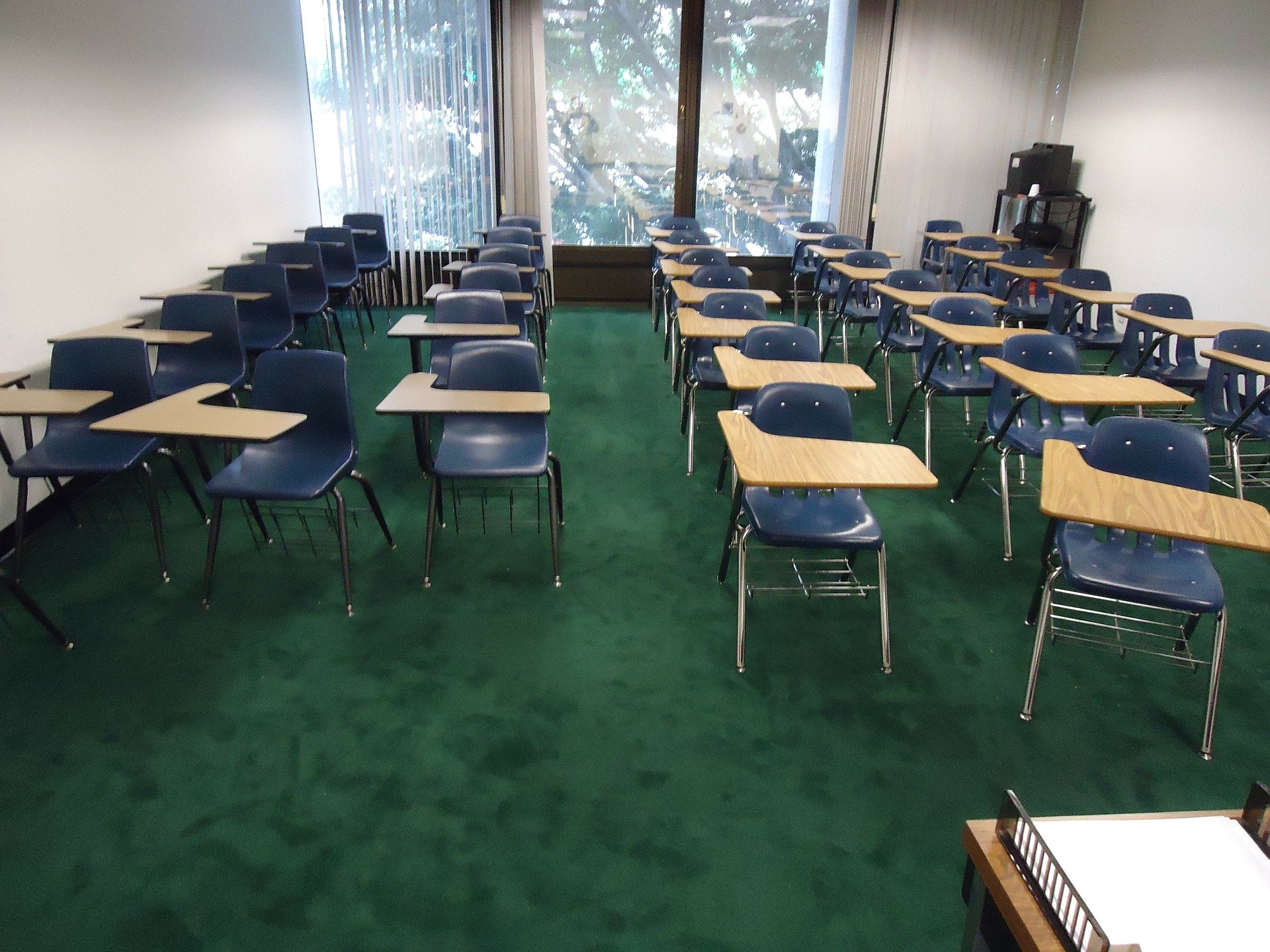We discuss recent developments at Croydon Council, Brexit and some interesting appointments to the Board of Trade. We then consider various recent protests, the latest on the US Presidential Election and whether or not the BBC has a Death Wish.
Author: croydonconstitutionalists
Pubcast 13 – Croydon Council’s Finances
We visit The Woolpack in Banstead and chat about recent developments at Croydon Council and the dire state of their finances.
Bans on Travel Not Right Approach and the SNP is ‘Playing Politics With People’s Lives’ – Sputnik Radio Interview
England has come under pressure to reconsider quarantine rules for Greece after Scotland and Wales introduced new restrictions for the country in a bid to slow a rise in coronavirus cases. Looking at this story in more detail, Sputnik spoke to the Analyst Michael Swadling from the Croydon Constitutionalists, in this interview.
“The great risk to this country is that we are not acting in a normal manner and anything, be it holidays, schooling, work, travel, shopping… that gets us away from normal and continues to spread that fear and dread“
“God knows, we need a break more than we would normally. Blanket bans destroy our travel industry, hurt those countries, hurt people who have saved hard and put away for a holiday and finally get that break their family needs. For what? For what risk? What’s the actual impact we’re seeing here?”
“If we had a government that had any courage, a government that was in any way ready to lead rather than just follow, Boris would do that but sadly, he’s really made a problem for himself because he’s never shown any signs of doing that certainly since this crisis began”
“we’ve now created an industry in government of dealing with the pandemic. The pandemic isn’t there in the same way anymore and they just need to find new things to do. Unfortunately, holidaymakers are the people being punished by that incessant need from government to find something else to do”
Audio:
Interview with James Hunt, Foundation Party Chairman
The Foundation Party is a party of clear patriotic principles and feels the major political parties are no longer fit for purpose. We have spoken with the Party Leader Chris Mendes and founding member Councillor Mary Lawes.
Now we speak with new Party Chairman James Hunt. James thanks for your time.

You have been a member of the Conservative Party, UKIP, run a think tank, The Libertarian Conservative Group and now are a Party Chairman by age 23. How have you found the time, and what are the highlights of what you have worked on?
In my years in politics I have been an active member of UKIP, the Conservative Party and the Libertarian Party. During this period I founded a think tank called the “The Libertarian Conservative Group” with the aim of uniting both Libertarianism and Conservatism as I noticed that both ideological actions always fought each other when in fact they are more alike than they like to admit.
I have always found the time to be so active because I am someone who works non-stop when it comes to politics. It is a subject that is always on my mind morning, noon and night. I want a country very different from what we have now, a country that respects the smallest minority, the individual. This is the driving force that gives me the energy to be as busy as I have and I do not intend to stop anytime soon.

Your appointment said the party’s internal focus will be in “ethical party governance, full exploration of modern digital technology, and properly supporting the hard-working volunteers”. Can you tell us a little about how you plan to take forward work on each of these?
Almost every political party I have been involved in has had two fatal flaws. It has ignored its members and it has never offered them the support they need to go out and campaign on their party’s behalf. The parties I refer to are UKIP and the Conservative Party.
Instead of properly valuing the dedicated active member who has worked so hard for their party, they have valued and prioritised the big donor instead. However it is not the big donors who meet the general public, deliver the leaflets and keep the party’s candle lit, it is the ordinary hard-working members and supporters and this is where I intend the Foundation Party to be different.
With respect to “ethical party governance”, I want the party’s members to be involved, to be provided with a voice to speak up against things they both agree and disagree with. I want our party members to feel like the door is always open for them. I want to hear everything you have to say, every idea you have, and why? Because this is the only effective way to succeed as a political party -united as a team we can accomplish everything, divided and we will achieve nothing.
Fully exploring modern digital technology is something that the Foundation Party is successfully doing. We are using some of the latest cloud technologies to automate many backroom processes so that we can invest more of our time on policy and campaigning . This also helps us to reduce operating costs and increases our overall efficiency as an organisation. The more time we can spend planning on how we will improve the state of the country, the better!
“My intention for the party in next year’s elections are to a) increase the number of council seats we currently have, and b) increase the public’s awareness that there is a fresh, exciting political party out there providing the radical opposition”
You’re building up to the 2021 local elections. What are your hopes for the party in these?
You are right that we are currently working very hard to get our party ready for the 2021 local elections. My intention for the party in next year’s elections are to a) increase the number of council seats we currently have, and b) increase the public’s awareness that there is a fresh, exciting political party out there providing the radical opposition, nationally and locally, that the country so badly needs.
“I would advise all of your followers to read the Town Hall Rich List, from our friends from the Taxpayers’ Alliance, which shows you how each of these councils are very happy to waste your money without a care in the world, and in next year’s elections this is something that we will fight against”
We often highlight Croydon Councils wasteful spending, excessive debt and ever-increasing council tax, areas you are focusing on. What do you think of the performance of many local councils today?
The performance of all local government is nothing short of abysmal. They spend money that they do not have, they raise everybody’s council tax systematically, each year without fail, whilst making sure that their chief executives are paid handsomely, often more than the Prime Minister. I would advise all of your followers to read the Town Hall Rich List, from our friends from the Taxpayers’ Alliance, which shows you how each of these councils are very happy to waste your money without a care in the world, and in next year’s elections this is something that we will fight against.
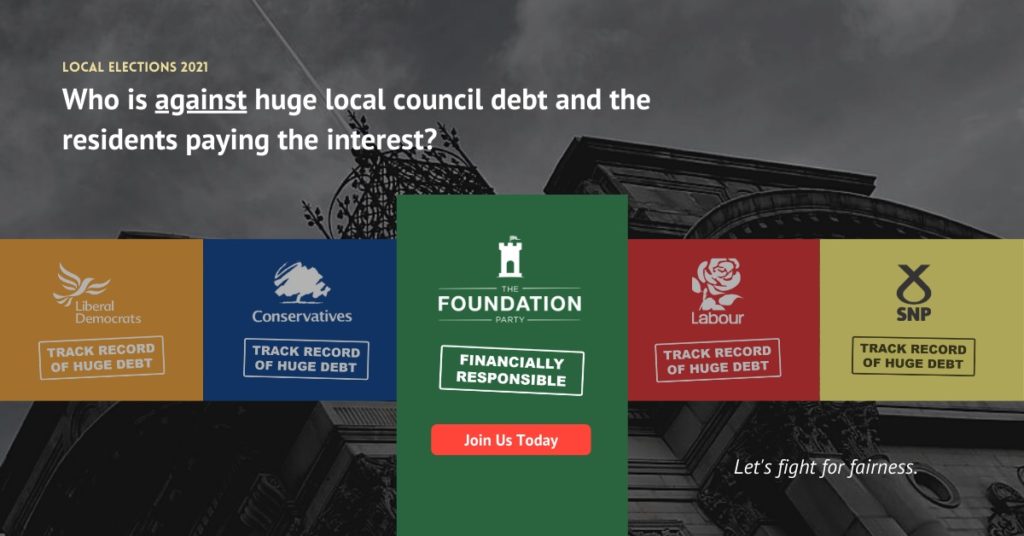
More broadly what policies do you see the party focusing on in the coming elections?
Broadly speaking the Foundation Party is radically different to the other parties. We believe in a confident bottom-up society shaped by the choices, innovation and good judgement of the people, with overriding government power that is cautious in nature, limited and robustly held in check, because the people are the masters, not the servants, and the true source of our success.
So our policy priority generally is about enhancing your ability to choose. We believe in lowering the tax burden on millions of ordinary families and millions of hard-working businesses so the people can choose how more of their own money is spent. We believe in free schools and the right for parents to choose the education for their children. And we believe in a democratic self-governing nation so the people can choose the government that governs them.
Locally we want to see decisions on major local issues made locally, rather than in Westminster, by devolving powers downwards to local authorities. We want to lower council tax. And we want to import long overdue financial discipline into Conservative and Labour controlled councils up and down the country who have a long track record of wasting the peoples’ money and delivering very little in return.
The Foundation Party is truly a party on the side of the people.
“I have never known at least in my lifetime a government to perform this many U-turns just because of an outrage to something that is being expressed on Twitter. What Boris has shown is that being popular is more important to him than being a good leader”
We have recently seen a year of Boris Johnson as Prime Minister. What are your thoughts on that year?
I was hopeful that we at least had a Prime Minister that was a bit less out of touch with the people, but the last year has shown me how wrong I was. Whilst he may be delivering “Brexit” (as far as we know), he is failing in every other regard.
I have never known at least in my lifetime a government to perform this many U-turns just because of an outrage to something that is being expressed on Twitter. What Boris has shown is that being popular is more important to him than being a good leader, and in the words of the late and great Margaret Thatcher, “If you just set out to be liked, you will be prepared to compromise on anything at any time, and would achieve nothing.”
I think Boris Johnson has gone down severely in the estimation of many, many people who were expecting much more, but then why should we expect any different from a Conservative Party politician of today’s calibre?
With likely increased unemployment, massive government debt and new ways of working impacting many industries, economics is likely to once again be at the centre of our politics. Given the opportunity, what are some of the main things you would do to kick start our economy?
There are two things I would do to kickstart the economy. Firstly I would cut all taxes to give both individuals and businesses more money to spend. They know how best to spend their money to get themselves back on track.
Secondly I would look at severely cutting government spending as it is not morally right to carry on borrowing record level amounts of money while the country is economically suffering. We need financial discipline and responsibility at times like this, and that includes the government. This would encourage businesses to invest, employ more people and grow their business, while allowing individuals to spend more money in the economy and increase economic growth – you cannot tax your way to economic recovery.

“What we need is a return to genuine liberty. The problem is, we simply do not have the political class that understands what liberty truly means, and even if they did, they wouldn’t for a moment have the courage to defend it”
With BLM protests, pro and anti-statue protests and the rise of cancel culture, we appear to be copying the culture war from the US. How do you think we bring the country closer together?
We can’t go wrong by reasserting the neglected values that pave the foundation of our country, such as freedom, liberty and democracy.
Statues should not be pulled down by mobs, they should be debated by the people and by their representatives and decisions made as a result of a democratic process. Speakers should not be cancelled, they should be free to speak and subsequently supported or opposed as a result of a free choice by those listening.
The recurring theme of this culture war is the “regressive left” and its abandoning of reasoned and civilised argument, in favour of uncivilised shouting and screaming.
But more crucially, we are faced with a movement that judges people on group identity rather than individuality. As groups like BLM charge a mass number of people with the collective crime of “white privilege”, for example, the teachings of Martin Luther King Jr. of ‘judging not by the colour of our skin, but by the content of our character’ is thrown out of the window and everybody suffers.
What we need is a return to genuine liberty. The problem is, we simply do not have the political class that understands what liberty truly means, and even if they did, they wouldn’t for a moment have the courage to defend it.
You’re after people getting involved. What’s your elevator pitch to people who might like to join or help your party?
We are always looking for people who share the values of the Foundation Party. At the core of the Foundation Party are our cultural values. The value which I think sets us apart from other political parties in the United Kingdom is our integrity. We uphold the highest standards in all of our actions and seek to maintain the trust of our members, supporters and voters. To achieve this we hold ourselves to the highest standards ensuring that we are transparent in everything we do as well as accountable allowing for proper scrutiny at all times.
As we have already discussed the Foundation Party is not the first party I have ever been involved with. However one thing my experience has shown me is where other political parties get it wrong. Instead of recognising their members for their individual merit, they have instead given preferential treatment to those with the most money, or those with the most blind loyalty and who will fit into their little inner circle. This is something I will never allow to happen to the Foundation Party. In the end, democracy and accountability within such a party is undermined and the work towards continuous improvement and development of the party comes to a halt.
In my position as chairman, I will ensure that members are treated equally and afforded the utmost respect and courtesy at all times. We are nothing if not a grassroots party which rather than seeking a reliance on a well-resourced few, but instead the loyal support of a dedicated many.
My promise to our members is that the party will always support you should you wish to get involved in any way it can – because the central office is not the party, the members are.
Are these any thoughts you would like to leave us with?
We are at the beginning of a very exciting journey. There are millions of people in our country who are fed up with the status quo, and fed up with the complete lack of real opposition. Our politicians are interested not in defending the rights of the people, but the rights of the government.
The real opposition that our country needs – championing the peoples’ right to national self-government, robust law and order, freedom of speech, lowering our taxes, more responsible public spending rather than bankrupting the country every five years – is not going to just emerge on its own, we have to create it. We cannot endlessly complain while doing nothing about it.
We in the Foundation Party have taken the initiative so that one day we can elect Members of Parliament and elect a government that is truly on the side of the people. Join us and let’s fight together.
James can be contacted at [email protected]. The Foundation Party are online, on Facebook and on Twitter.

Reclaiming Liberty

By Mike Swadling
Growing up in the 80s it was common to hear “I can say what I like,, it’s a free country”. This has not felt true for some years. We have seen growing control from the state over what you can say, the business you can engage in, the food you eat, and what you can stop your children being taught at school. This gradual encroachment on liberty from governments, universities and Big Tech, has been little preparation for the tsunami against freedom we have seen in 2020.
Whatever you think of the initial 3 week lockdown, it was as an understandable response to a pandemic, and was imposed to simply protect vital health services. 5 months in, health services were not overwhelmed. The introduction of further requirements for facemasks seems only to happen because politicians and advisors have too much power and too little willing to give it up.
When the Coronavirus Bill was passed giving sweeping powers to the government to lockdown society few other than Steve Baker MP showed any concern at what was happening saying in the House of Commons “For goodness’ sake, let us not allow this dystopia to endure one moment longer than is strictly necessary”.
Since then we have seen advisors, the mainstream media, celebrities, big business, Big Tech and politicians of all parties, complain the lockdown wasn’t imposed soon enough, wasn’t harsh enough, and that people mostly stuck indoors weren’t taking it seriously enough. We’ve even had the police already given unprecedented powers, make up rules to tell people they can’t stand in their own front gardens. There are notable exceptions in the media like Toby Young with his excellent Lockdown Sceptics site, but there is no mainstream objection or leading politician questioning the erosion of liberty.
“You don’t have to win general elections to exert influence. If you can gain some support in the polls the major parties will take note”
What can we do about this? How can we reclaim liberty?
The Green Party with foundations in 1975 (as the Ecology Party), hit a high point in 1989 with 15% of the vote in the European elections, has never had more than 3.6% of the vote in a General Election and never had more than 1 MP. Yet all main parties are committed to net zero emissions and have we have a Department of Energy & Climate Change.
UKIP / Brexit Party whilst receiving 12.6% of the vote in 2015, and twice winning the European elections, managed only 2 MPs. Yet we had a referendum and have left the European Union (and let’s hope we fully leave at the end of the year). The SNP and Plaid Cymru were never major parties prior to the devolved assemblies in both nations. The reason I point this out? You don’t have to win general elections to exert influence. If you can gain some support in the polls the major parties will take note, you will empower sympathisers in them, and make strategists look for opportunities to win back your support.
Imagine we had a group, even small group of major politicians who were vocal about liberty. Politicians who could be invited onto mainstream media or write columns opposing new rules. Politicians who make speeches on liberty in the House of Commons. Mainstream figures who could be shared on social media. This would start to make a difference. It might not have stopped lockdown, but might bring about a quicker opening up, might stop further lockdown rules and bright ideas on advertising, or buy one get one free offers.
“a small group of MPs wanting to see off a threat from freedom focused candidates would likely be opposed to the governments next imposition on us”
Scared politicians are compliant
It would be great to be able to write that I believe a classical liberal party could start up tomorrow and with a little bit of advertising could capture 30/40% in the polls and be viable to form a government. I’d even like to be able to write that I think they could get 15% and really shake the establishment to taking on their policies. Nothing I have seen before or during lockdown makes me believe that. But 1%, and up to 5% with the right issues in some areas. Yes that’s possible.
Imagine we had a broadly libertarian party running at 1% in the polls and able to stand candidates in most of the country. At 1% (about 500 votes per constituency), 12 MPs with majorities of less than 1% would know their seats we’re at risk. At 3% a number quite achievable with some targeting of resources, 40 MPs would be at risk. At 5% (again possible with targeting), 35 Conservative (almost half their majority) and 20 Labour (almost 10% of their MPs) would be at risk.
Whatever one of these numbers could happen, a small group of MPs wanting to see off a threat from freedom focused candidates would likely be opposed to the governments next imposition on us. They would garner supporters in the mainstream and non-mainstream media, and be champions for the cause. Long before anyone mainstream was talking about a referendum to leave the EU, we had a multitude of opt outs from the EU and never joined the Euro, in no small part due to a small number of eurosceptic MPs. Imagine what a similar group could do for liberty.
Is this possible and if so, how quickly is this possible?’ At the 2019 General Election the Yorkshire Party proved to be the biggest of the small parties, running 28 candidates and receiving over 29,000 votes. The Liberals (an actually liberal party unlike the LibDems) managed to run 19 candidates averaging over 570 votes per constituency. Whilst economically more collectivist, strong on personal liberty, the Christian Peoples Alliance (CPA) and the Social Democratic Party (SDP) managed 27 and 20 candidates respectively and the Libertarian Party managed 5 candidates averaging 356 votes a piece. These relatively unknown parties, who all respect personal liberty managed a respectable 72 candidates (all of whom did and would have expected to lose their £500 deposits) and an average of 316 votes (about 0.6%) between them.
Based on the numbers above, and keeping in mind 2019 the Brexit Party took 2% of the vote, people who are likely to sympathise with this cause, it should be more than possible for a well organised party to run say ~200 candidates, get registered in polling, and make MPs take note.
What platform?
We have a Libertarian Party, a Scottish Libertarian Party, and a UK Liberty Party. The Brexit Party is broadly libertarian, UKIP is by its constitution libertarian. The Foundation Party, 5 Star party, and Time Party are all largely classically liberal. Whilst more economically collectivist the Liberals, SDP and CPA all agree with many of the core values of freedom, run decent number of candidates and reach communities most libertarians don’t.
Too many parties chasing relatively few votes is a problem, and one very difficult to resolve. People fighting for liberty are by their nature free spirited. It may be over the next few years the parties shake out and we see one or two clear leaders, or as an alternative we might see parties work either formally, (realistically needed to register in polling) or informally, together.
Away from the parties what might be the platforms they agree on? I believe they all agree on the following:
- free speech
- rule of law
- democracy
- devolution of power from the centre
- value for money from what government does spend money on
Here you have the basis for domestic liberty, government spending (at all levels), constitutional reform, and a preference for democracies in foreign policy. Not a bad start. The Stockport Declaration written by a group of former Brexit Party candidates is a good overview of much of this. We saw in the 2019 election the benefit of a small manifesto for the Conservatives (62 pages), and even then almost no one can remember anything beyond ‘Get Brexit Done’. A few simple ideas, well publicised, get votes.
“As a minimum, each time you stand you will raise awareness. You may deliver or hand out some thousands of leaflets with a simple message supporting free speech, supporting free choice”
How to make progress?
As someone who has run for office 3 times without making much impact on the outcome I feel a little presumptuous writing this but please bear with me.
If the goal is to get support, copy the parties you are aiming to get support from. What does your local Conservative, Labour and even Green Party do? Do the same or similar. Major parties build up support from local councils (from Parish to County and every type in between). Down to just 11 MPs, you might wonder how the LibDems keep going, but when you know they have 2527 Councillors, and run 19 District councillors it’s less of a surprise. District councils have limited but real power, and influence how we live.
To get elected you firstly need to run for election. Council seats are free to run for and only need 10 signatures (2 for Parish) to stand. In many parts of the country elections are held annually, and may include Parish, District and County elections for the same area. There is an annual opportunity to run for election, sometimes multiple elections, all free. All requiring just 10 signatures from local residents to run. 5000 leaflets (colour, double sided, A5, decent weight of paper) are £100 (not cheap but not generally unaffordable) from my local printers, it can be less online. 5000 leaflets would cover most council wards, and depending on the area you live in, give you about 40 hours of delivery exercise!
Granted not so possible at the current time, but once back to normal street stalls in a busy high street can be an effective way to get your name out there and speak to people. Leafleting on public land, outside a primary school when parents collect their children or in the morning at a train station are great ways to get seen by many people and get a leaflet straight in their hand.
As Jordan Peterson says first ‘clean your room’, get to know your local community, if you can, volunteer locally.This improves name recognition for you, builds knowledge, builds your CV (political and professionally), is living by the rules you are proposing, and can be personally rewarding. As a school governor for many years, it is mostly an apolitical role, but I have found on occasion I have been the sole voice for parental choice, or stopping a ‘bright idea’ that isn’t as apolitical as the proposer thinks it is.
When you have an event, issue a press release, local reporters emails are normally on their website. The press probably won’t publish it (they might) but you can publish it and people are more likely to read an article titled ‘Press Release’ than one titled ‘street stall’.
Use social media as an add-on not substitute for physical activity. A street stall where you hand out a 100 leaflets, speak to 10 people in some detail, get seen by a thousand, and followed-up with a Facebook post on the local residents Facebook group, or maybe advertised to the local area (normally about 1p per person reached, £2=200 people), backed with a few tweets to #nameoftown, is a really effective add on to your day, and reaches out to new support. The Facebook post or tweet alone will simply speak to the echo chamber. Public Facebook groups work best when they speak to the public, about real issues relevant to them, rather than ways to share in jokes, or the talk about the least mainstream ideas to the committed few.
If you do all this will you get elected? Probably not, no. Unless you live in an area with a Parish council where it’s quite possible you can stand unopposed. You probably won’t win the first or even the second time you stand. As a minimum, each time you stand you will raise awareness. You may deliver or hand out some thousands of leaflets with a simple message supporting free speech, supporting free choice. You might organise events, get more local Facebook or Twitter followers, get one of many press releases published, the key thing is, you will be building support for the cause of freedom.
And what if you are elected, even as a loan voice on a Parish council? You get the opportunity to implement polices at a local level. You get to build support for ideas. You can write to you constituents, the press, or more widely as a Councillor. An elected Councillor speaking for liberty, that would be a big improvement on what we have today.
Building consensus
Elections generally happen once a year. Many of these parties are very small and the next member may live a few towns away! It can be a hard slog when a few of you are out campaigning let alone doing it by yourself, but why not work together?
Often the main enemy of most small parties is a lack of name recognition, the main enemy of personal freedom, is I think, lethargy. Why not work with other local parties to organise a debate or a local protest, an event, to jointly support a petition etc. Anything that gets your name/s and the cause out there.
Find something your local council is doing to restrict freedom and work with others to make that an issue to campaign on. Even simply organise joint drinks with another group as a bit of moral support and to share ideas. When parties are running at 5% they can campaign against each other when they are running at 0.005% they gain more working together.
Right now we do have restricted freedom (a potential campaign issue) but unless under local lockdown you can leaflet. If you have a local issue you can issue a press release or write a letter (and mention your party) to the local paper, and if they don’t publish it – you can. You can write an article for a site like this or better still this site! And most of all, if there are elections in your area, you can stand for election next May!

Image by TJSMIT10 / CC BY-SA (https://creativecommons.org/licenses/by-sa/3.0)
Pubcast 12 – Covid Travels
We visit the South Croydon Conservative Club and chat about our recent trips away and what it is like travelling during the Covid restrictions.
Beyond State Schooling
Dan Liddicott Libertarian writer, podcaster and political candidate, writes about state schooling.
Has lockdown proven we don’t actually need state schooling? That there are better ways of getting an education rather than rely on the government?
“It’s worth noting that our present system of education was invented in the 1800s to meet a very specific need – an obedient and trained population, discouraged of original independent thinking”
Putting the criticisms and worry generated by the state response to missed exams aside, for now, this is likely the start of a long conversation. But let’s begin by considering this briefly. It’s worth noting that our present system of education was invented in the 1800s to meet a very specific need – an obedient and trained population, discouraged of original independent thinking, with teaching limited to those licensed by the state delivering a standardised curriculum – designed in the industrial revolution and built on the Prussian model which wanted obedient soldiers as the end product.
Award winning teacher John Taylor Gatto wrote:
“In the long history of the human race, until the mid-19th century, no such institution as universal forced schooling (following a government design) ever occurred, because the idea is so ridiculous on its face.” (1)
Education expert Sir Ken Robinson, wrote:
“One size does not fit all. Some of the most brilliant, creative people I know did not do well at school. Many of them didn’t really discover what they could do—and who they really were—until they’d left school and recovered from their education.” (2)
In spite of the challenges lockdown posed, I can’t help thinking it perhaps offered more educational opportunities than barriers for those who wanted to seize them. Individuals were finally free – during ‘school hours’ – to pursue education and learning of things that resonated with their interests, passions and inclinations, rather than the ‘one size fails to fit all’ standardised curriculum.
As Kerry McDonald, of the Foundation for Economic Education put it:
“The vast technological platform that is now at our fingertips makes self-education accessible to all. It also makes clunkier forms of learning, like sitting passively in a classroom memorizing and regurgitating information from textbooks and a predetermined curriculum, seem passé at best. …Humans have an instinctual drive to learn and are able to learn an incredible amount of knowledge and skill in their earliest years. This natural curiosity continues into adulthood, but is often dulled by a forced system of education that prioritizes schooling over learning. The ability to self-educate can be schooled out of us, leaving us dependent on others to be taught. Technology changes the relationship between teaching and learning. It empowers the learner, supports the rapid change of knowledge creation, and lets the learner decide what to learn, when, and from whom. Learners may still choose to be taught, but their teachers work for them.” (1)
“Is it just possible, that classroom learning designed over a century ago is an anachronism? Has lockdown shown we don’t need school – except perhaps on a superficial level, as a place to put our kids while parents work?”
Is it just possible, that classroom learning designed over a century ago is an anachronism? Has lockdown shown we don’t need school – except perhaps on a superficial level, as a place to put our kids while parents work? Has the government response to the lack of exams demonstrated even they are not essential – do skills and knowledge matter more than grades? Certainly many graduates of 2020 will be proving that to future employers and Universities without any exams at all.
But what do you think? Can we do without the state school system? Is real education better achieved by technology? Is classroom schooling an out of date throwback to bygone era? Could genuine education leave schooling behind?
References taken from:
(1) Boyack, Connor. Skip College: Launch Your Career Without Debt, Distractions, or a Degree.
(2) Robinson, Ken. The Element: How Finding Your Passion Changes Everything.
Article kindly reproduced from original.
Dan can be found on Twitter, Facebook and at his website https://libertaridan.com/.
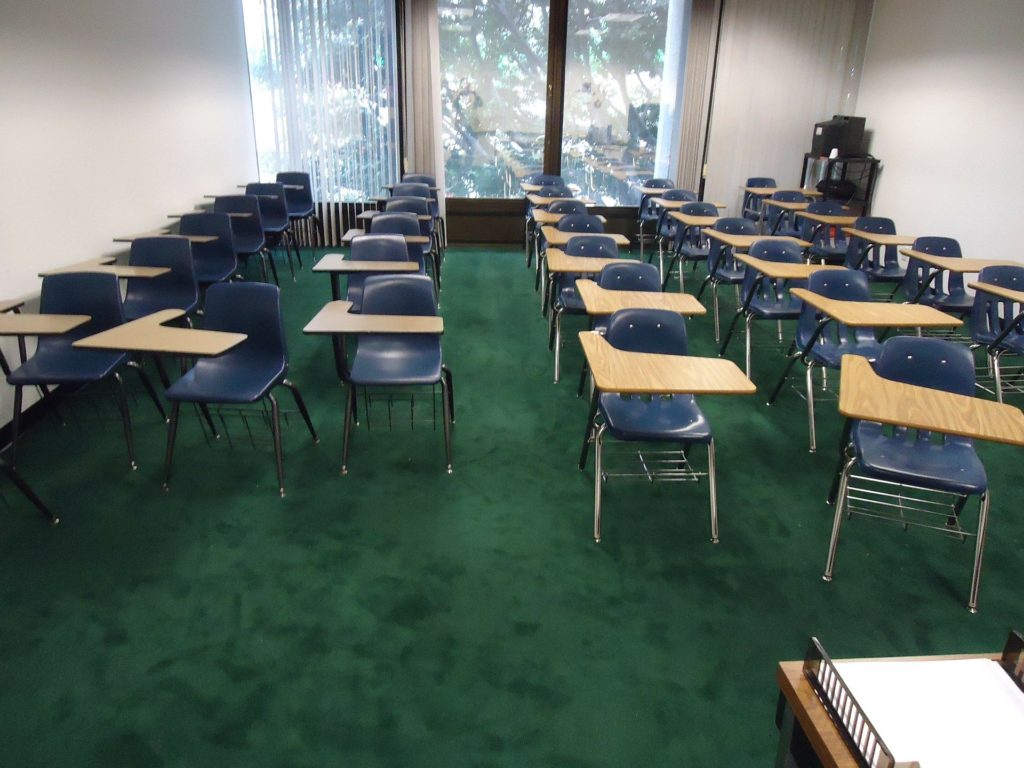
Podcast Episode 40 – Scotland Special with guest Alasdair Stewart
We are joined by Alasdair Stewart, the former Chairman of the Croydon Conservative Federation, for a discussion of Scottish politics. We discuss the SNP Government’s response to Covid, the Highers Results scandal, minimum drinks pricing and the new Scottish Hate Crime Bill. We then consider the new Scottish Tory leader, the demise of the Labour Party and the prospects for the 2021 Holyrood Elections and a potential IndyRef2.
Also see our article on the Scottish Libertarian Party https://croydonconstitutionalists.uk/interview-with-tam-laird-leader-of-the-scottish-libertarian-party/

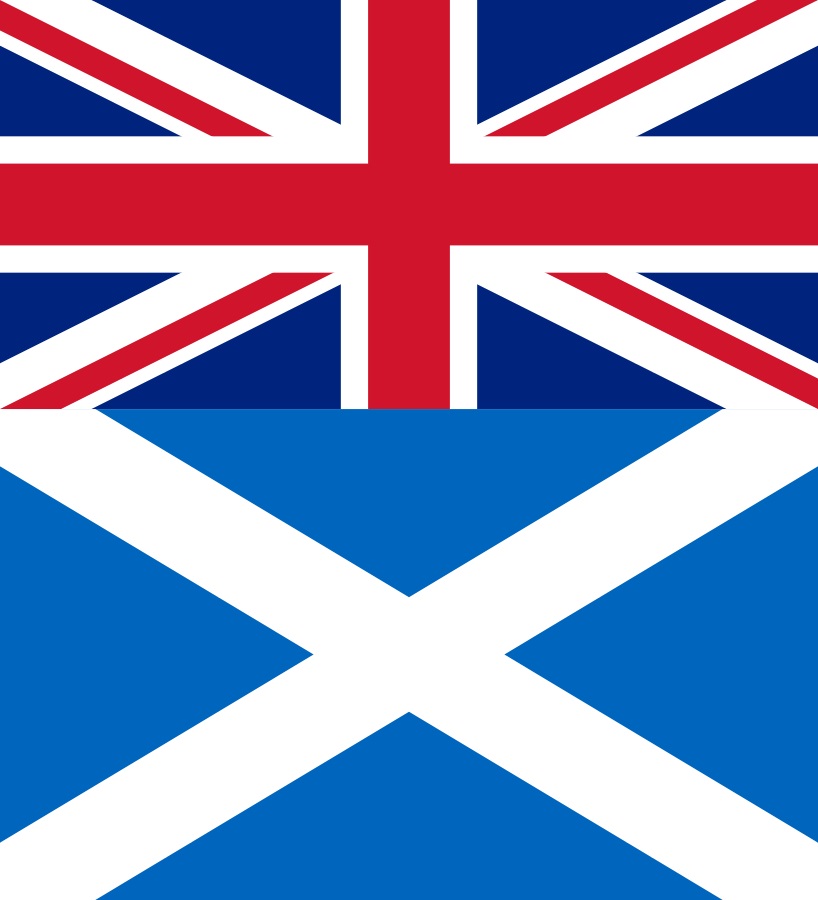
Private Unemployment Coverage – How The Free Market Can Give Security For Unemployment

Opinion Piece by Josh L. Ascough
With the UK only now beginning to realise the problem with putting an entire economy on lockdown; forcing millions out of work for being classified as “non-essential”, is it time we rethink how we cover the struggles of unemployment?
Having unemployment coverage run by government has its issues. Due to the fact that no one can consume more than what they produce, if people are unemployed then the government through taxation redistributes money; yet if not enough people are producing, then the resulting answer (in the eyes of the government), is to print more money, resulting in the purchasing power of the money becoming less valuable. This ultimately does further harm to the very people that were in need of help to begin with, as through inflating the money supply, the money operating within the economy becomes less valuable because money is subject to the same laws of supply and demand as any other market good; so the poor, unemployed person with £20 in his pocket from unemployment payments, will find he is less capable of purchasing goods and services than he was before.
It is, quite literally, stealing value and economic growth from our “what was to be” future.
There is also the problem of people who are capable of working, the work exists, yet refuse to work, because there is no incentive to work. If an individual is handed “free” money at the expense of another man’s productive efforts, and he faces no risk or opportunity cost to himself; where is the incentive to work?
In addition there is the problem of individuals who hold a repetition of becoming unemployed through a lack of responsibility resulting in being fired; whether it be through stealing from the workplace, abusing staff and/or customers, lying about being sick or a whole host of other actions which justify the termination of employment, the fact is this:
If you create poor or no incentives for people, you will come up with poor or negative results.
This is not to say there are not people who are unemployed through no direct fault of their own. There are many people who become unemployed due to a whole host of reasons; the company going out of business, costs for employees rising, economic disasters, natural disasters, or simply not meeting the expectations of an employer.
So if the problem is unemployment, why not just create more jobs?
If the goal is purely to have full employment then there is a simple answer; bring back conscription. If every worker is staffed in the army then we will have full employment, but we will also have nothing to eat. Jobs are not the ends, they are a means for people to live better; to put food on the table by the production of what people demand. That is how you achieve economic growth; creating jobs for the production of things which have no demand and simply exist as a policy to “get people to work” creates and holds no value.
“I am very much on the same side as the great Professor Walter Block; if it moves privatise it, if it doesn’t move privatise it. Since everything either moves or doesn’t move we should privatise everything.”
So if employment for the sake of employment and government unemployment coverage aren’t the answer, then what is?
As the title suggests, I believe the answer to be the privatisation of unemployment coverage. I am very much on the same side as the great Professor Walter Block; if it moves privatise it, if it doesn’t move privatise it. Since everything either moves or doesn’t move we should privatise everything.
“Now private doesn’t mean you pay for it or that it is for profit, private simply means it is not owned, run, or managed by the government; to be a private aspect of the economy is to be separate from government involvement or management, and to be commanded and operated by private citizens”
Now private doesn’t mean you pay for it or that it is for profit, private simply means it is not owned, run, or managed by the government; to be a private aspect of the economy is to be separate from government involvement or management, and to be commanded and operated by private citizens. There are a few ways unemployment could be covered in a free market economy which I will go over. However, it should be noted that these are not policies of a top-down approach. Not every means mentioned will be of value to all individuals just like any aspect of the market; this is an approach from a bottom-up position based within human action and incentives.
Community Coverage – We have many locations around the UK which hold on to community values: look out for your neighbours and help to keep your community safe. One form of private unemployment coverage could come in the form of community coverage based within a HA (Homeowners Association). Now in the UK we don’t really have Homeowners Associations apart from a few “gated” communities. A Homeowners Association is a private association, usually formed by estate developers in order to manage homes in residential areas. However in a free market there is relatively no reason these associations could not be run and managed by the community members themselves via the formation of what could be called “Community Contracts”; these contracts would operate on a membership benefit basis.
For example, let’s say John Smith wishes to buy a home in a community which has a Community Contract. He is not required to sign the Contract in order to live in the community; if he chooses to sign, he will be legally obliged to have a certain percentage of his income deposited into the communities fund, which is to be used to cover damages to any of the properties, donations to churches if it is a religious community, maintaining roads, and, on the subject we are focused on, assisting in coverage for unemployment. Now as stated, Mr Smith is free to not sign the contract and live in this community, however if he chooses not to, any damages to his property, any religious building he wishes to attend, any roads within the community he wishes to drive on and covering his unemployment will have to come out of his own pocket, rather than the fund set up by the contractual obligations of the community.
Now the reader may think this is a disadvantage for Mr Smith; however the community is incentivised to have Mr Smith sign the contract, not simply because it means more funds by the community for the community, but because if they can insure Mr Smith is a contracted community member, then they can further insure there will not be a ripple effect on to the value of their own property through damages which have been done to his property, through not being able to afford a toll on the road which goes towards maintenance, or through him becoming unemployed and being unable to pay his bills. His incentive if he chooses to sign the contract is the same as the communities incentive to encourage his signing; shared community values, maintenance of the community resources, ensuring protection against damages and unemployment, and securing the property value at high rates.
“Some may say this is just a local version of government with choice added in to the mix; to which I would say localism and choice by our current standards are the complete opposite of government”
Some may say this is just a local version of government with choice added in to the mix; to which I would say localism and choice by our current standards are the complete opposite of government.
But what if like myself, you don’t really get along with your neighbours and you don’t hold any shared values (I’m a Libertarian ever moving towards Anarcho-Capitalism living in a Labour stronghold; I’m as out of place as Karl Marx in an Economics class) and you don’t value such a setting; or if the location you reside in doesn’t hold community values, what is the option for a purely individual basis?
Unemployment Insurance – An Unemployment Insurance Program (We’ll address it as simply UIP from this point), would operate on a similar basis to most insurance program do now; the higher financial risk you pose the higher rates you’ll have to pay. However just as insurance for health or cars in a free market would be more open to innovations and competition, insurance for unemployment would operate in a much broader sense.
These rates would be based on a number of factors; taking into account a person’s income but in addition taking into consideration living costs, if the person has ever been fired and what for, and the level of experience and/or qualifications which increase or decrease a person’s ability to obtain and retain a job.
This would mean that, for example:
Let’s say we have two individuals; persons A and B.
Person A has a job which pays £20,000 annually, has never been fired, holds 5 years’ experience, holds a degree where there is high demand for that line of work and their consumption and living cost are low.
Person B has a job which pays £23,000 annually, has been fired multiple times for abusing customers, holds 12 years of short-lived experience based on being fired from multiple establishments, holds a diploma where there is high demand for that line of work and has high consumption and living costs.
A’s living costs are low because he doesn’t smoke or drink, has paid off his mortgage and economises on what he consumes.
B’s living costs are high due to holding a high drug and drinking habit, and due to holding debt from excessive credit card use.
If an unemployment insurance company based its rates off of the factors which were mentioned above, then we can assume that B would have higher rates to pay.
B would have higher rates to pay because he has been fired a variety of times due to abusing individuals and because of a high drug/drinking habit. He has a higher risk of becoming unemployed due to his own actions, and so would have to pay more as he is a bigger financial risk to the insurance company.
A would have to pay lower rates due to the fact he has never been fired, holds low living costs due to economising on his resource consumption and holds a degree in an area with high sought after work. He has a low unemployment risk and in the low risk event of losing his job either due to his own actions or an exterior causation, it is speculated he would not be unemployed for a long period of time, due to his experience, and his sought after qualifications.
“We can see from this scenario that the unemployment coverage would favour those who are responsible individuals and financially punish those who were not responsible”
We can see from this scenario that the unemployment coverage would favour those who are responsible individuals and financially punish those who were not responsible and were the cause of their own terminations.
This would incentivise what otherwise would be harmful, reckless individuals who become unemployed due to their own negative actions to take on responsibility, while ensuring those who are responsible and who may lose their jobs due to exterior reasons receive higher coverage for lower costs, because due to their responsible actions are less of a financial risk to themselves or the insurers.
This is all good for those who already have employment, but what about individuals in communities where there is no employment; how do we address this problem?
Unemployment Charities and Work Foundations – Now addressing an entire community which is unemployed and in poverty is a difficult subject in the hypothetical because (A – poverty is the natural state of man and (B – lack of economic activity is not a black and white scenario and can occur for a variety of reasons; for the purposes of this example however, we will assume that poverty within an entire community has occurred due to governments regulating economic activity out of business, and has become a generational problem.
Within a market economy, charities could be set up much easier than current (we can also make the assumption that in this hypothetical scenario, the monetary sphere and government are separate, and sound money is active; which would remove the risk of private charities being decimated by inflation), to provide financial aid to those who need it. In addition to this work foundations could be set up, which would receive their funding via donations from private citizens and businesses, in order to provide training to individuals to give them the skills for work; as well as provide funding to individuals looking to set up a business to boost the GDP of their community, but lack the funds due to no economic activity and/or not being able to acquire a loan due to low or no credit score.
The ultimate theme here is one of choice; choice for how we cover ourselves and help our neighbours and whether we choose to do either or not.
“Nobody likes to see others suffer, but forcing resources from others in order to give to another does not make the giving moral. What makes it moral is the recognition of choice and the analysis of values each person holds”
Nobody likes to see others suffer, but forcing resources from others in order to give to another does not make the giving moral. What makes it moral is the recognition of choice and the analysis of values each person holds; can any act actually be deemed “moral” if it is forced without any understanding as to why this act is right or wrong? If I put a gun to my neighbours head in order to redistribute his wealth to someone else who I deem to need it more, am I moral or would I have been moral if I took the time to persuade him of the moral value of charity, and he gave based on his own understanding and agreement of value?
It is very easy to force things from and upon others; it is difficult to persuade, but it is a lot more rewarding and long term, as if you can achieve such a feat, you will have created a moral framework, rather than a violently forced act of charity; which is no charity at all.
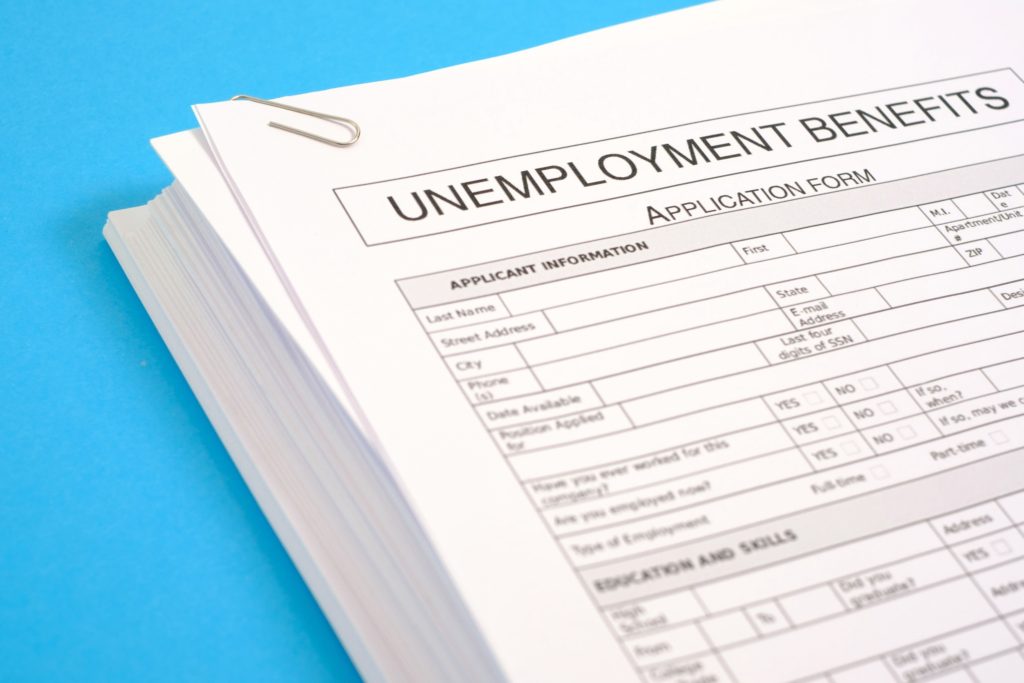
Main image: https://www.123rf.com/photo_96096037_stack-of-cv-and-application-for-employment-on-blue-desk.html
Interview with Kevin Bruns, Leader of the UK Liberty Party
Set-up in 2016 the UK Liberty Party has the “SteppingStones” concept of moving continually closer towards protecting individual rights, enabling laissez-faire capitalism and achieving a constitutionally limited government. The party allows members to directly propose party policy and somewhat unusually, amongst other things, has its own coffee brand.
We speak with party leader Kevin Bruns. Kevin thank-you for your time.

What are your feelings about how we make the country more free and how would your “SteppingStones” work?
To have a free country you first have to have free individuals. Freedom is a fundamental requirement of Man’s nature; a being of the mind. It is Man’s mind that is his tool for survival, for thinking, creating, discovering, producing; for living.
The enemy of that freedom to think, to act, is force from another. If a man lived on a dessert island he would not need the concept of freedom; of Rights. There is no-one to use force on him. He would however, need a guide to action, a moral code; “What should I do to survive?”.
It is that code that leads to the question “What should I do if I meet someone else?”. The answer, in recognition of the potential of force from another, is the moral concept of Rights; the sanction of action within a societal context.
That is the base we work from. Everything in the context of the individual and his Rights. It is the base we think a proper government should work from. The first “SteppingStone”, although not part of our intro video, which deals with potential policy ideas, is to spread the idea of this view of Rights and what constitutes a proper government leading to a wider acceptance and understanding of what freedom means, how Rights protect that freedom and how a proper government protects those Rights.
”SteppingStones” as an idea comes from a family holiday when I was younger at a place called Tarr Steps. A series of large stepping stones across, what seemed to be at the time, a raging river. I was hesitant to cross and received this piece of advice from my Dad “Look, to get to the other side seems really hard because you’re looking at the river and how far away the other side is. Just a take it one step at a time and you’ll get there.”
That’s the basic premise, to steadily work towards our goals, as you set out in your introduction.
“Party members helping to create policy seemed logical to me. The more people that I can involve in the process of thinking about the party’s goals and suggesting ways to bring them into reality the greater the chances of change”
We now have a quite a few parties in the UK that are broadly liberation. What makes your party different and how does your system of letting members propose policy work?
The philosophy of freedom, Rights and proper government formed following that philosophy is our difference and I think is unique to us.
Party members helping to create policy seemed logical to me. The more people that I can involve in the process of thinking about the party’s goals and suggesting ways to bring them into reality the greater the chances of change.
It’s all done electronically and offers Members the opportunity to influence the policies that could ultimately affect their lives.
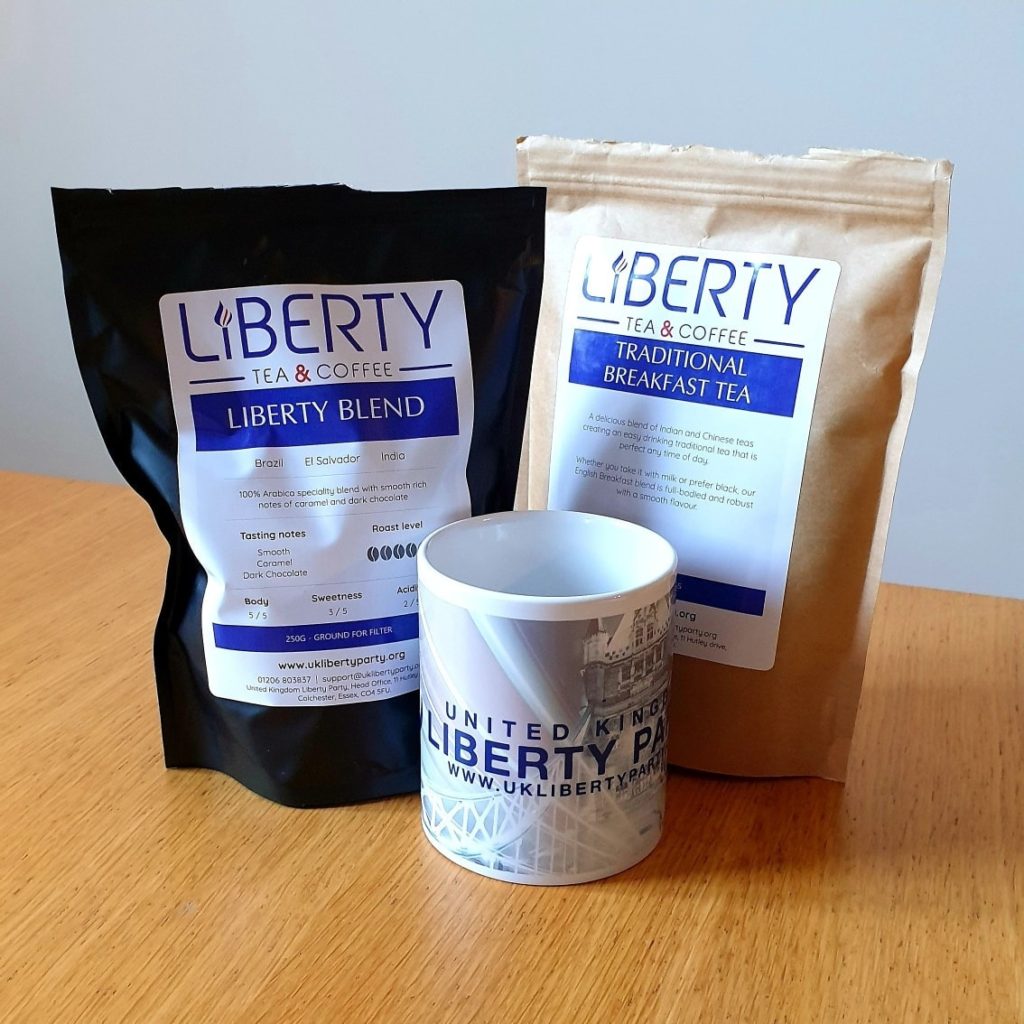
The party has an online shop with it’s own tea and coffee brands. What led to that coming about?
Capitalists gonna Capitalist! Joking aside, it was simply an idea to ensure that the party isn’t reliant on Members or donors to have the funds to grow. Gaining new members is hard work.
Our Liberty Store not only offers a great range of tea and coffee but also clothing and accessories with more products in the pipeline.
Being advocates of laissez-faire capitalism there is also a range of business focussed services that help them to reduce their running costs. These include, electric, gas, mobile and broadband.
Individuals can also sign up to be ‘Liberty Ambassadors’, we provide them with personalised urls’, they share them on social media and then we pay them a commission or bonus on any sales that happen as a result. Not only do they earn an extra income but we have funding to grow. Win-win.
“A small, temporary, ‘War Fund’ tax, started over 200 years ago has become one of the most Rights abusing activities of government… and is roundly applauded by most. It just shows how difficult it is going to be to move towards freedom”
To give our readers an idea about the party, could you briefly set-out your platforms on Brexit, Global Warming, and Taxation?
Pro Brexit. This government hasn’t handled it to my liking. However, with no influence in the direction they took, it was odds on that most voters would be left not fully satisfied. There seem to a be a million different ideal outcomes that government hasn’t achieved!
”Global Warming” is too much of an abstract term. Too all encompassing. It’s a tool for an agenda of global governance.
However, assuming that it is the biggest issue we are facing, the solution is not to give more and more power to governments to tackle it. The solution is to allow entrepreneurs the freedom to identify specific problems and come up with market solutions.
Taxation is extortion. It does however serve as a great lens on the creeping nature of government power that we have allowed to become commonplace. A small, temporary, ‘War Fund’ tax, started over 200 years ago has become one of the most Rights abusing activities of government… and is roundly applauded by most. It just shows how difficult it is going to be to move towards freedom.
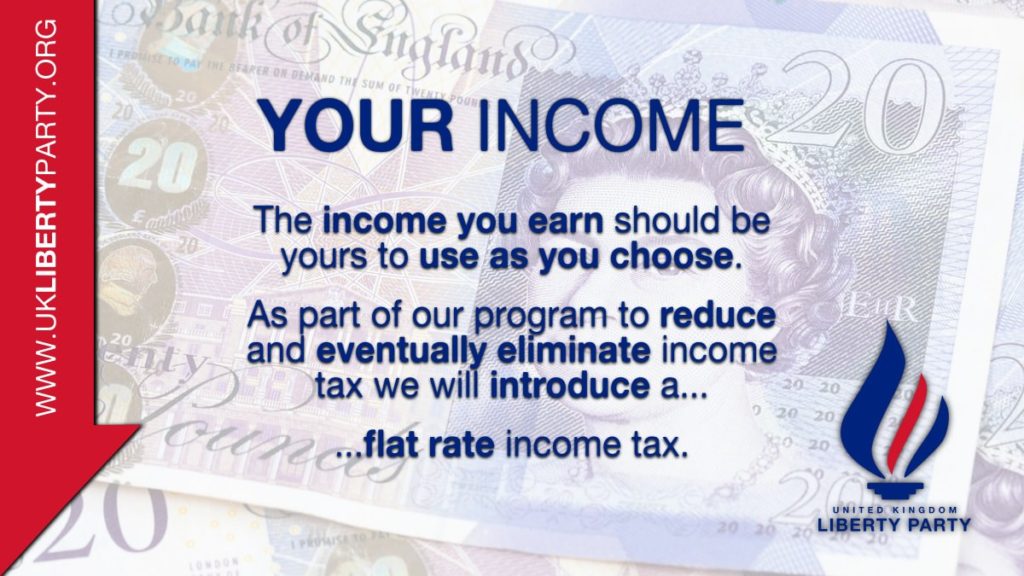
“A free market would have quickly learnt lessons over each virus outbreak and would be far better equipped to deal with outbreaks. The NHS seems to start out as ‘Baby Bird’ each time, simply falling out of the nest and waiting to see if it can fly!”
We’re in the period of Covid and the ever moving lockdown. What do you think of the governments handling of the crisis, and what would you like to see done next?
Government, and I mean government as I envisage it, must always be restrained from initiating force. It is an agent of self-defence. It is a Rights protection agency. Today’s government is a contradiction of almost everything I advocate for.
Using government force (tests, lockdowns, businesses closed) on those not proven to be infectious is wrong, it is a Rights violation. In respect of Rights the question should always be “What do we do about X without violating Rights?”.
Government should have set out very simple guidelines at the start and should have locked borders to all those not able to prove their infectious status.
Should have been:
- If you are over 60 with any health issues stay home whenever possible (Data from as early as late Jan was showing these most affected). Everyone else carry on until you show any of these symptoms X,Y,Z. At that time you *must* get a test. (Yes, at the point of an individual with symptoms showing it becomes a Rights issue so government mandates are permissible) Then, if positive, self-isolate, track and trace, rinse repeat (again by mandate if necessary).
- It must be clear though, without proof a government cannot use any force. By force, I mean Laws, Regulations etc. not just physical.
As to what they should be doing today, the above.
It’s worth noting that the government response has been influenced by the inability of the NHS to respond to this type of emergency. A free market would have quickly learnt lessons over each virus outbreak and would be far better equipped to deal with outbreaks. The NHS seems to start out as ‘Baby Bird’ each time, simply falling out of the nest and waiting to see if it can fly!
We have a bumper set of local elections coming up in May next year. What are your plans for these and generally for elections going forward?
It’s far too early to stand in elections with any hope of being elected. Look at the momentum The Brexit Party created and the growth of members and yet it didn’t manage anything of note at the elections.
Our plans are to work on spreading ideas. Ultimately unless people adopt new (better) ideas anything political will always end up as a tyranny of the majority.
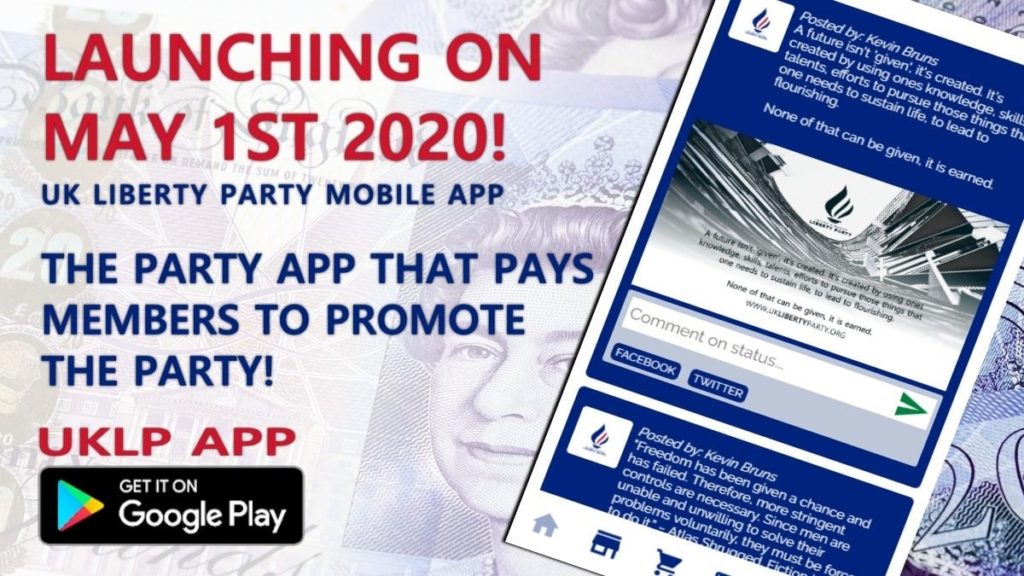
What can people do if they want to get involved?
Most importantly discover more about the ideas that we advocate. Become a Member or Supporter. Buy our products. Use or services. Send us money. Need Help!
The UK Liberty Party are online, on Twitter, and on Facebook. Kevin is also on Twitter.



